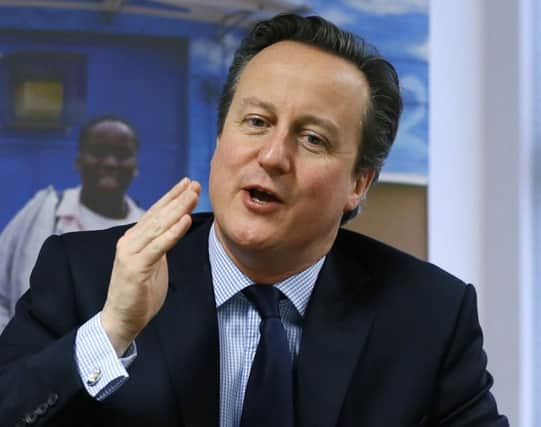Greg Wright: Are the Tories really the best friends of business?


It’s the time of year when journalists trot out tired old cliches to appease the spirits of Christmas past, present and future.
Well, I’d rather not dwell on the events of 2015. What’s past is prologue. I’d far rather look ahead to 2016 as the economy heads into choppier waters.
Advertisement
Hide AdAdvertisement
Hide AdWhen David Cameron pulled off an unexpected triumph at the General Election, the result was broadly welcomed by the business community.
At the very least, most firms I spoke to preferred to see a Government with a workable majority to the inevitable compromises and uncertainty of a Labour-SNP coalition.
The Tories have always billed themselves as the friends of businesses great and small. But do they really deserve this title?
With our exporters facing a sea of troubles, it’s the worst possible time to create uncertainty about the relationship with our most important trading partner.
Advertisement
Hide AdAdvertisement
Hide AdWe need to hold an in-out EU referendum as soon as possible – ideally before the summer.
In my 12 years on The Yorkshire Post’s business desk, I’ve never sensed a groundswell of opinion in favour of leaving the EU.
The vast majority of firms value our ties with Europe above all other alliances.
That’s why David Cameron’s decision to hold a vote on whether we should leave the EU makes no economic sense whatsoever.
Advertisement
Hide AdAdvertisement
Hide AdThere’s always scope for fine-tuning the relationship, but an outright divorce would be disastrous.
I’ve always believed the planned referendum was simply a cynical ploy by the Tories to neutralise the threat from UKIP.
With UKIP’s fortunes apparently in decline, there really is no reason for Cameron to pause much longer.
Real damage is already being done to the UK’s prospects. Two credit-rating agencies have already said that Britain risks a hit to its creditworthiness and possibly a downgrade due to Cameron’s decision to hold an in-out vote over Europe.
Advertisement
Hide AdAdvertisement
Hide AdShortly after the International Monetary Fund said the referendum could hurt Britain’s growth prospects, Standard & Poor’s said it was keeping its outlook for Britain’s top-notch rating at negative, while Fitch affirmed a rating that was one notch weaker.
If Labour was offering a more incisive – and business-friendly – alternative to the Tories it would be well-placed to hammer many elements of the Government’s economic record.
Sadly, Labour’s brightest stars are languishing on the back benches.
Instead of brandishing a little red book at the dispatch box, Shadow Chancellor John McDonnell should have waved recent reports from the manufacturers’ organisation, the EEF, which paint a far from rosy picture.
Advertisement
Hide AdAdvertisement
Hide AdThe latest study from EEF and DLA, the global law firm, shows that manufacturers are enduring a difficult end to the year “in the face of gathering gloom from the global economy”.
The Tories might argue that there’s not much they can do about the world economic picture, but Andy Tuscher, the regional director of the EEF, is worried about the downbeat mood.
He said: “It is critical that Government continues to act to ensure that the UK is a competitive location for manufacturing.”
In this context, it’s hard to understand the Government’s decision to close the Business Growth Service, which played a major role in helping Yorkshire manufacturers.
Advertisement
Hide AdAdvertisement
Hide AdThe Government trumpets its work to create “a strong, growing economy” where red tape is kept to a minimum.
However, at a time of stronger economic headwinds, targeted support for manufacturing is vital. If the Government doesn’t start listening, the ghost of an unreformed Scrooge may tower over 2016.